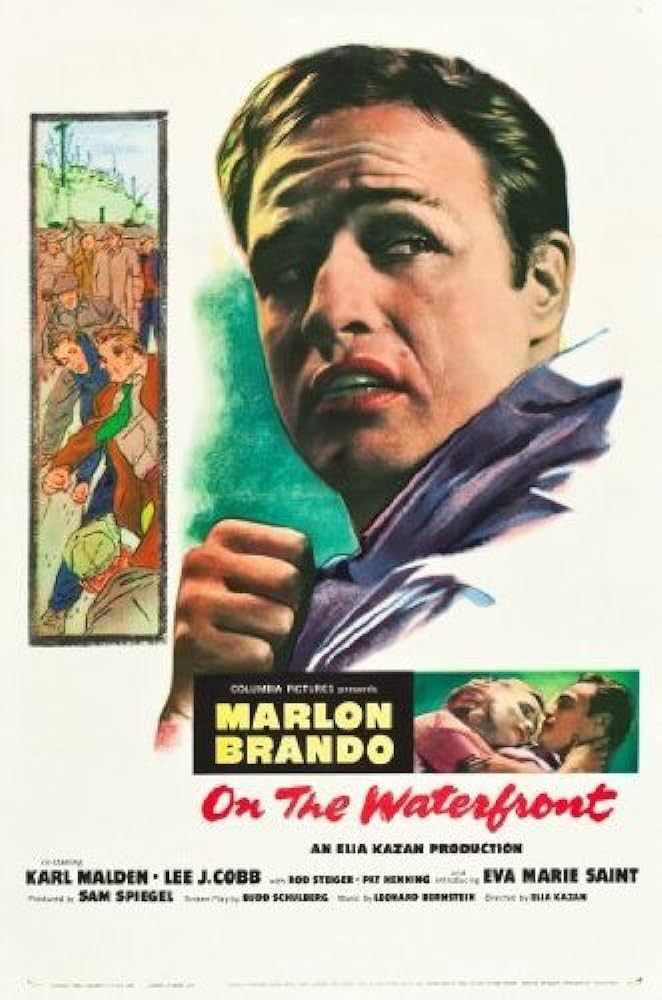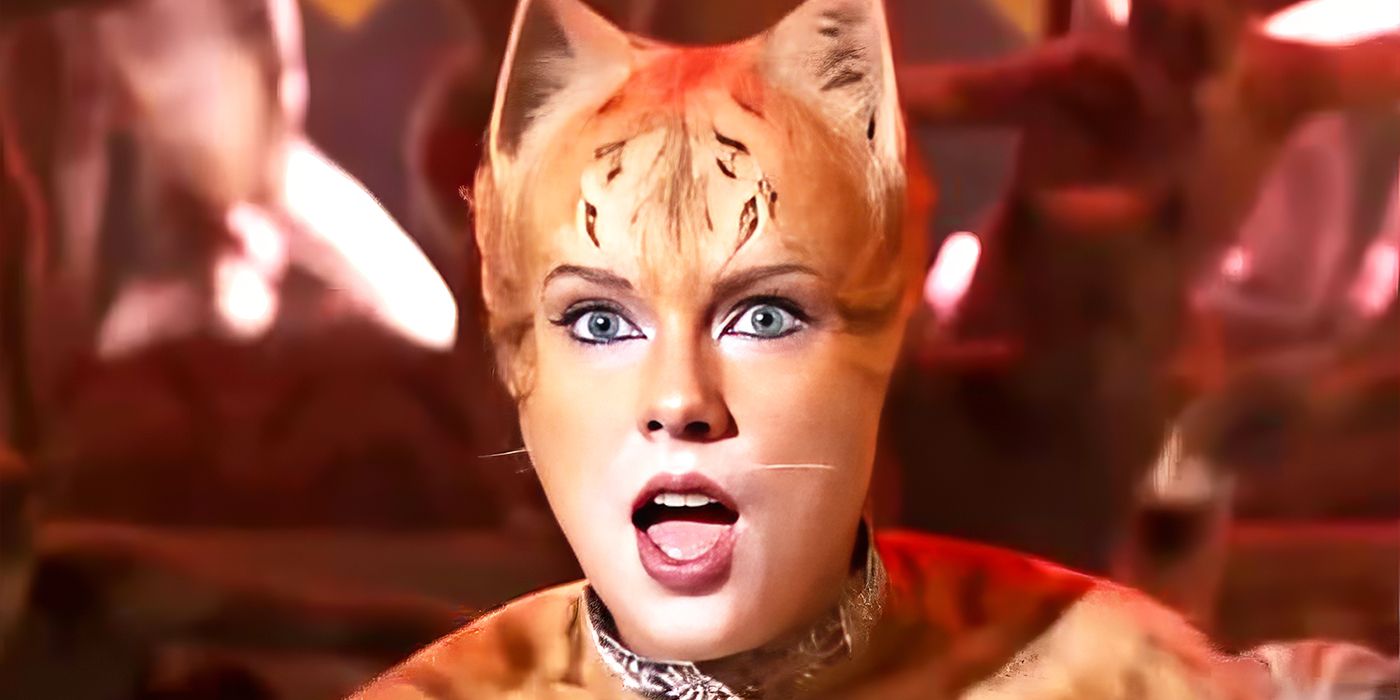Presley modeled much of his stage persona and acting ambitions off of one of the most iconic performances in Marlon Brando’s career.
The Big Picture
- Elvis Presley aspired to be a serious actor like his idols Marlon Brando, James Dean, Karl Malden, and Rod Steiger.
- Elvis felt cheated by his film roles, as they didn’t challenge him artistically and didn’t showcase his range as an actor.
-
On the Waterfront
was a groundbreaking film that left a lasting impression on Elvis and influenced his rebellious stage persona.
Thanks to Sofia Coppola‘s Priscilla and Baz Luhrmann‘s Elvis, movies about Elvis Presley, the “King of Rock ’n’ Roll,” are getting the same attention that the icon always wanted to have on-screen. Although Presley is one of the most culturally significant musicians of all time, the films that he starred in don’t exactly live up to that reputation. Sure, Jailhouse Rock, Blue Hawaii, Speedway, and Spinout, among others, gave Presley the chance to rattle off a few iconic musical numbers. However, as films, they fall well below any reasonable expectations of quality. What makes these largely forgettable film roles by Presley more disappointing is that he clearly had greater ambitions in mind for his acting career. Presley modeled much of his stage persona and acting ambitions off of one of the most iconic performances in Marlon Brando’s career: On the Waterfront.

On The Waterfront (1954)
An ex-prize fighter turned New Jersey longshoreman struggles to stand up to his corrupt union bosses, including his older brother, as he starts to connect with the grieving sister of one of the syndicate’s victims.
- Release Date
- July 28, 1954
- Director
- Elia Kazan
- Cast
- Marlon Brando , Karl Malden , Lee J. Cobb , Rod Steiger , Eva Marie Saint
- Runtime
- 1hr 48m
- Main Genre
- Crime
Elvis Wanted To Be Taken Seriously as an Actor
While Elvis and Priscilla have very different perceptions of what the late pop icon was really like, both films depict a similar crisis in Presley’s life. Presley felt cheated by his film roles, as he didn’t feel like the studio-approved crowdpleasers that he was starring in challenged him in any meaningful way. In Elvis, this is clear during a few scenes of Austin Butler’s version of Presley on set conflicting with his manager, Colonel Tom Parker (Tom Hanks). Butler’s Presley felt that he was at his best when he was pushing artistic boundaries, and not adhering to what audiences would expect from him. In Priscilla, Presley’s artistic frustrations have a dark side. He takes out his anger at being creatively inert on his young wife Priscilla Beaulieu (Cailee Spaeny), and at one point throws an object at her head. While Elvis and Priscilla are completely opposed in their depiction of Presley himself, they seem to agree that his struggles finding compelling film roles caused significant hardship in his life.

The 10 Worst Movie Musicals, Ranked
Even Jellicle cats cringe at these musicals.
It appears that both Baz Luhrmann and Sofia Coppola did their research, as Elvis’ creative struggles have been well documented. In Priscilla Presley’s autobiography Elvis & Me, the widow of the late singer admitted that Presley’s desire was “to become a great actor like his idols Marlon Brando, James Dean, Karl Malden, and Rod Steiger.” She revealed that Elvis wanted to do films with “more substance and fewer songs,” as he felt that he was given roles purely because of his musical talents, and not his range as an actor. Unfortunately, Presley’s creative struggles continued to plague him up until the end of his career. Although the 1970 concert film Elvis: That’s The Way It Is gave him a brief comeback, he spent the rest of his career performing in Las Vegas. The opportunity to work alongside great directors like Stanley Kubrick or Preston Sturges sadly eluded him.
Why Did Elvis Presley Love Marlon Brando?
Presley and Brando were both era-defining popular culture icons of the 1950s that grew more mature in the 1960s. Both men represented the outsider, counterculture revolution that was steadily growing in the United States. Brando had first announced himself as a star with the 1953 film The Wild One, where he starred as a young motorcyclist who caused enough trouble to get kicked out of his hometown by the local law enforcement. While The Wild One was the film that kick-started his career, Brando’s best work came a few years later in On the Waterfront. The film earned eight Academy Awards, including Best Picture and Best Actor for Brando. Unlike the second Best Actor trophy that Brando would win for The Godfather, he actually accepted his award for On the Waterfront in person.
On the Waterfront was a groundbreaking artistic achievement that showed what it was like to be stigmatized by a community. Brando starred as Terry Malloy, a former prizefighter who gave up his chance to be “a contender” at the request of the mob. Mallory now lives the rest of his life in the shadow of the fighter he could have been. If he had stood up to the mob when he was younger, he could have actually made something of his life. The emotional strength and heartbreak that Brando showed during the film’s climactic moments earmarked it as one of his best performances.
Academy Award voters weren’t the only ones who were impressed with the film. Apparently, Elvis Presley was obsessed with On the Waterfront. According to Presley’s regular collaborator Mike Stoller, he had intended to star in a more serious film project because he “had always wanted to do something like a Marlon Brando as an actor.” Presley was so serious about the film that he recruited On the Waterfront’s writer Budd Schulberg and its director Elia Kazan to work with him. Brando’s performance had left an impression on Presley and gave him something to aspire to. While Presley never got the chance to do a “Brando-esque” dramatic role, the “rebellious” persona that he created through his stage performances felt like it was derived from Terry Malloy. It’s not the only thing that the two men had in common; Brando and Presley both earned the reputation of being somewhat difficult to work with.
Marlon Brando’s ‘On the Waterfront’ Performance Kicked Off a New Chapter in His Career
On the Waterfront is now remembered as one of the best films of the 1950s. The film was a cinematic breakthrough thanks to the emotion within Brando’s performance, and the sense of realism that Kazan had introduced. Before On the Waterfront, Kazan and Brando had worked together on the film adaptation of A Streetcar Named Desire, which was acclaimed for bringing the dramatic authenticity of a stage play to the big screen. On the Waterfront captured a similar sense of naturalism, but told a completely original story.
On the Waterfront kicked off a new era in Brando’s career, but unfortunately, it didn’t last long. Brando’s issues became bigger stories than his film roles, and it took Francis Ford Coppola’s The Godfather to re-establish his reputation as one of the industry’s best-living actors While Brando still provoked some issues during the production of The Godfather, it is remembered as being the film that finally gave him a comeback.
On the Waterfront is available to watch on Prime Video in the U.S.
Watch on Prime Video
This article was originally published on collider.com


